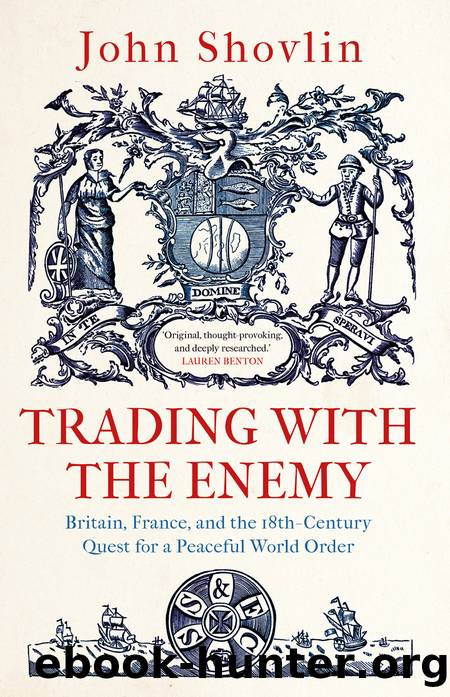Trading with the Enemy by John Shovlin

Author:John Shovlin
Language: eng
Format: epub
ISBN: 9780300258837
Publisher: Yale University Press
3. The Caribbean in the 1760s
The free ports represented only part of a much more ambitious programme of commercial reform. The most expansive vision was that of John Huske MP, a merchant with Boston roots who called for the creation of a dozen free ports in the Americas, including New York, and was for âextending our trade with foreign colonies in America far beyond whatever it was in its most flourishing stateâ. Linked originally to the former chancellor of the Exchequer, Charles Townshend, Huske supported Rockinghamâs initiatives on trade and the Stamp Act, and was considered a contender for a cabinet position if the administration had survived.39 He envisioned a zone of relatively free interimperial trade in the Americas as a branch of a broader British commercial-imperial system. He wanted foreign shipping to have liberty to carry the produce of the French and Spanish colonies to North America, in exchange for slaves, provisions, and British manufactured goods. Relative American freedom of trade would be compatible, at least in spirit, with the navigation acts because British shipping would still carry all American goods to Europe, be they of British or foreign provenance, while all raw materials necessary for industry would be channelled to the British market.40
Leading Rockingham Whigs aspired to renovate the whole of Britainâs commercial system, âa complete revision of all the Commercial Laws, which regard our own or the foreign Plantations, from the act of Navigation downwardsâ, as Burke put it.41 They wanted to remove restraints on American trade with foreigners unnecessary for the protection of British commerce. Without giving the fullest possible rein to their trade, Huske argued, Americans could not buy British goods. Trade with foreigners enabled them to afford the products of the mother country. âMany of the colonies were so situated as to have very few means to traffick with this country,â Burke agreed. âIt became therefore our object to let them into as much foreign trade as could be given them without interfering with our own.â42 Trecothickâs committee hinted that these measures might be âbut as the great Out Lines of a plan to extend the National Commerceâ.43 As Burke noted of the intra-Caribbean trade, âwe have the advantage in every essential article of itâ, such that âalmost every restriction on our communication with our neighbours there, is a restriction unfavourable to ourselvesâ.44 The planter interest, though favourable to the Jamaican free ports, blocked a wider extension of free trade. Planters worried that a more ambitious measure of the sort Huske called for would stimulate French sugar production, and that through leakages from the new system foreign sugar would compete with their product in imperial markets.45
Within the broader history of free-trade ideas explored in this book, how should Rockinghamite ideas be understood? They represented not an outright attack on the navigation acts, which Burke would later defend, but a significant modulation of their rigour where freer trade seemed certain to yield greater benefits to the mother country. There were precedents for such a move,
Download
This site does not store any files on its server. We only index and link to content provided by other sites. Please contact the content providers to delete copyright contents if any and email us, we'll remove relevant links or contents immediately.
Room 212 by Kate Stewart(4125)
The Crown by Robert Lacey(4122)
Endurance: Shackleton's Incredible Voyage by Alfred Lansing(3862)
The Iron Duke by The Iron Duke(3659)
The Rape of Nanking by Iris Chang(3535)
Killing England by Bill O'Reilly(3469)
Joan of Arc by Mary Gordon(3275)
Say Nothing by Patrick Radden Keefe(3078)
I'll Give You the Sun by Jandy Nelson(2850)
Shadow of Night by Deborah Harkness(2749)
Hitler's Monsters by Eric Kurlander(2741)
Margaret Thatcher: The Autobiography by Thatcher Margaret(2692)
Mary, Queen of Scots, and the Murder of Lord Darnley by Alison Weir(2683)
Darkest Hour by Anthony McCarten(2655)
Blood and Sand by Alex Von Tunzelmann(2617)
Red Famine: Stalin's War on Ukraine by Anne Applebaum(2473)
Eleanor & Park by Rainbow Rowell(2402)
The One Memory of Flora Banks by Emily Barr(2358)
Book of Life by Deborah Harkness(2286)
